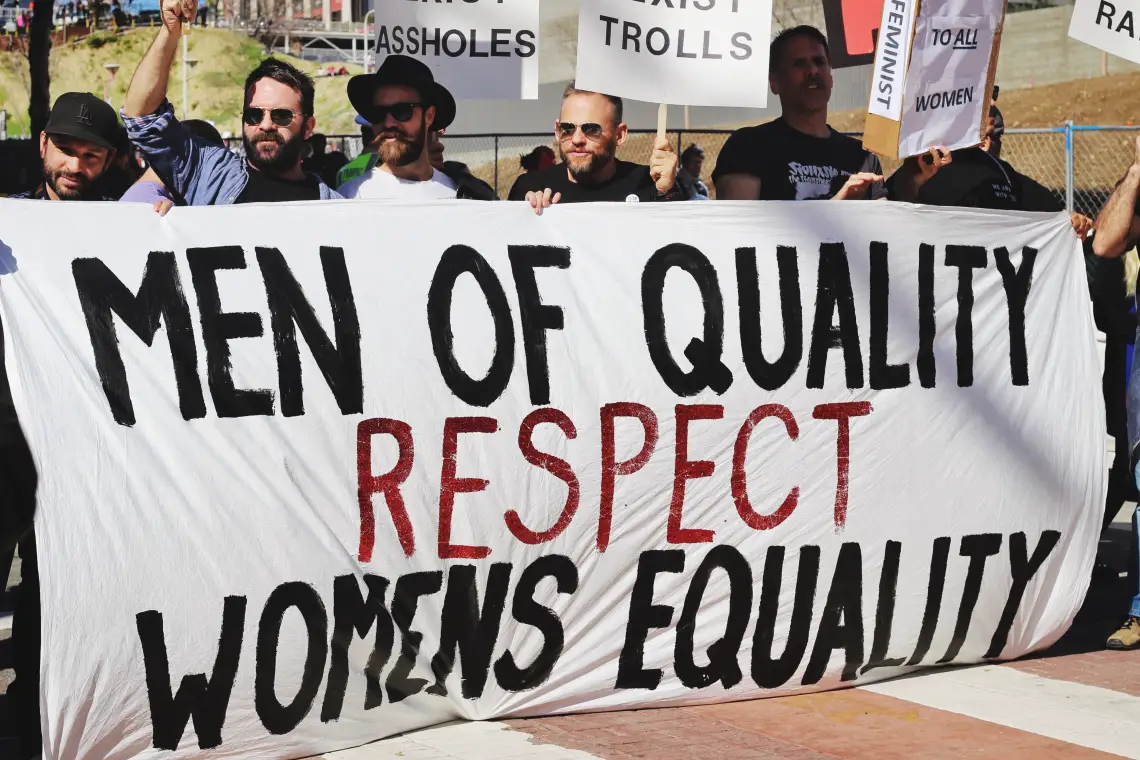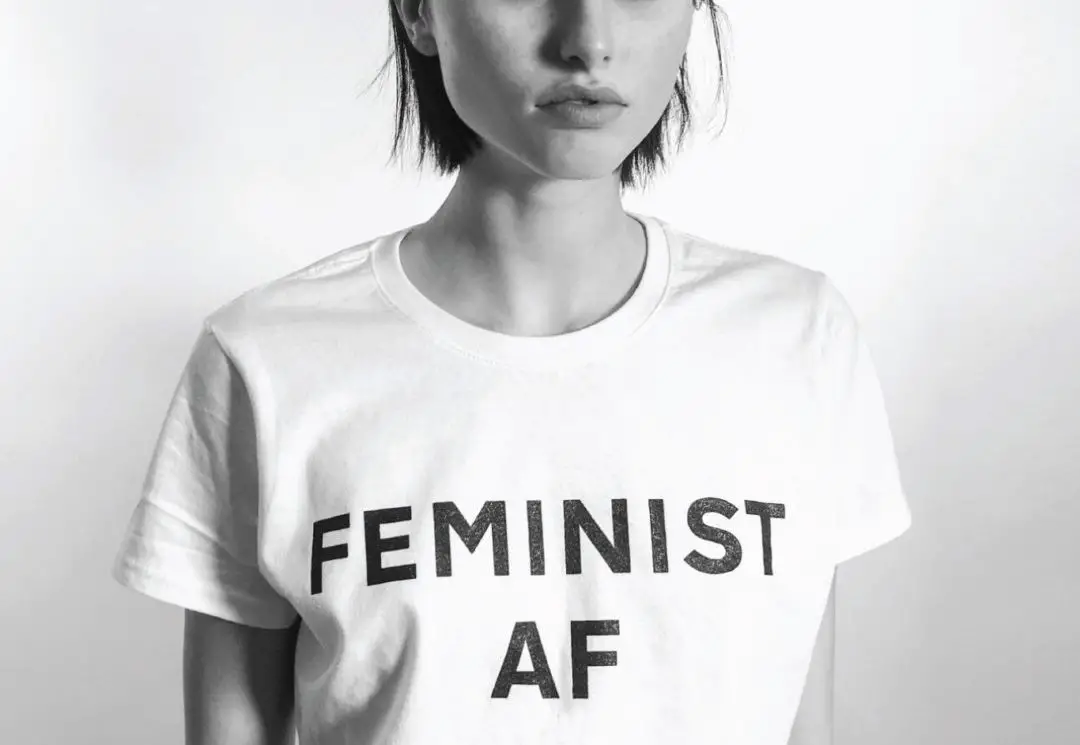Feminists get a bad rap these days, but opposition to this movement is nothing new. From the first wave of feminism in the 1800s to now, people have perpetuated certain myths about feminists in an effort to discredit activists and the movement itself.
Though these stereotypes obviously do not apply to every feminist, or even a majority of feminists, they are still pervasive in society and lead many people to oppose the tenets of this incredibly necessary movement. So, without further ado, here are the most common stereotypes still plaguing the movement — hundreds of years later.
1. Feminists hate men
I’m here to tell you right now that feminists, as a group, don’t hate men. Sure, there are some feminists who are misandrists, but they don’t speak for the majority.
I could go into long-winded detail explaining feminism’s goals and how none of it has to do with man-hating, but plenty of feminists have done so and, at this point, I believe that the majority of people who don’t understand what feminism is all about are willfully ignoring any explanations offered.
When I hear these comments being made, people are generally just upset toxic masculinity is being questioned. There’s a huge difference between criticizing an institution and hating an entire group of people, and any feminist worth their shit is going to ensure that their criticisms don’t turn into personal attacks.
2. Feminists just want power over men
Most likely, this stereotype comes from narrow-minded people who can’t conceive of a truly equal world. Almost every society has experienced male domination at some point, so it might seem incomprehensible to think of a world without one group that triumphs while the other suffers.

When I hear this criticism I always think of a clip I once saw of Gloria Steinem on a talk show panel. A man in the audience accused her of wanting to overpower men, and she simply said that she wanted things to be equal — completely 50/50. Even after her explanation, the man said, “So, more?” and continued to insist that she really wanted women to be on top. Again, the willful ignorance is strong here, and anyone who makes this claim really just doesn’t want to understand feminism.
3. Feminists burn bras and do other “crazy” stuff
The bra-burning myth began in the late ‘60s when feminists protested the Miss America pageant. Activists threw various objects representing female oppression into trash cans, but none of the objects were ever set ablaze. So, bras definitely were involved at some point, but the stereotype was born without any evidence of them actually being burned, and the stereotype still persists to make feminists seem unhinged.
Women who trashed their bras were symbolically rejecting oppressive feminine clothing and gender norms, which is the same reason why some feminists refuse to shave, wear heels and so on. Why is wanting to be comfortable a radical act? Why does wanting to wear non-restrictive clothing make a woman crazy?
4. Only women are feminists
There are plenty of high-profile men who freely admit that they are feminists. John Legend, Joseph-Gordon Levitt and countless others have been speaking out in favor of feminism in the press, and oodles of non-famous men have stepped up to rid the world of sexism.

And no, male feminists aren’t just joining the movement to get laid.
5. Feminists want to be like men
Seriously, how does a movement that centers on women still end up being all about men? Feminists don’t want to be like men, they just want to live their lives unencumbered by double standards and ridiculous stereotypes. Fight me about it.
6. Feminists can’t take a joke
Feminists love jokes just as much as the next person — you’re just not funny.
Here’s the deal: If your joke relies on stereotyping a marginalized group in order to be funny, then it’s not a good joke. You can make a whole room of people double over with laughter without resorting to clichés or making fun of something that people are attacked for daily.
Even some of the most problematic men in comedy (I’m looking at you, Aziz Ansari and Louis C.K.) have told plenty of jokes that have nothing to do with making a mockery of women, people of color or any other disenfranchised group. If you can’t rise above the level of Louis C.K., then you should probably just cut your losses and sit this one out.
7. Feminists are ugly
Y’all, the fact that you’re calling into question the validity of a women’s movement by insulting their looks completely justifies having the movement in the first place. Women should not be taken any less seriously because they don’t fit your ideas of beauty.
8. Feminists are making it all up
Tell that to the one in six women who get raped every year in the U.S. alone. Tell that to the women who are 35 percent more likely to live in poverty than men. Tell that to the women who work in the savagely misogynistic Silicon Valley. Tell that to the women with disabilities who have higher unemployment rates than men with disabilities. Need I go on?
Sexism impacts women from every walk of life. The fact that you don’t see or experience it doesn’t mean you’re right, it means you’re lucky.
Most people would look back on the first and second waves of feminism and recognize that the women in the movement were fighting for valid reasons. Voting rights, gaining access to jobs outside the home and countless other goals may seem much more reasonable to those who despise the third wave’s goals, but one must keep in mind that the very derision that’s directed at the movement today was equally as present during those times.
People today who say, “Well, women don’t need to fight for such and such, it’s not a real problem” would say the same thing about women fighting for equality in the 19th and 20th centuries, and to think that they would support feminists back in the day is laughable.
These stereotypes exist merely as a way to discredit feminism and the people within the movement and have no real basis. It should also be obvious that many of the stereotypes perpetuated today were hurled at feminists from the first and second waves as well, and most people today would look back on those times and agree that the way feminists were treated was absurd.
What’s the difference now? Do women suddenly not know what they’re talking about, or is the opposition to feminist messages a tiresome continuation of the same criticisms that have been made for centuries? I think it’s clear that there is no difference. Until there are widespread efforts to understand feminists, these stereotypes will persist and further divide people. It’s time to put these inane, baseless mischaracterizations to rest.

















